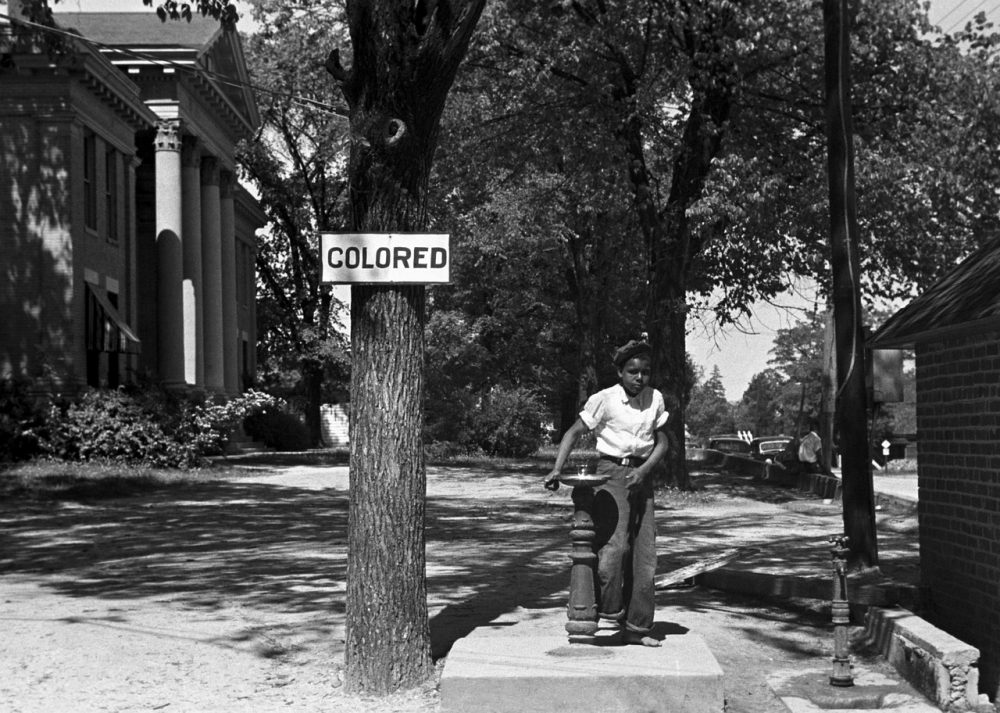Hierarchy is alive in every society, government, companies, and academic institutions, everywhere. Leadership is essential, especially where a large number of people are involved.
As a result, students all over the world do leadership essay assignments, to test and prepare them for typical challenges, solutions, or skills necessary for taking on responsibilities and impact lives.
What Is A Leadership Essay?
A leadership essay is an essay that details your leadership skills and the role you play in society. Many schools will ask you to write a leadership essay because then they are able to tell the kind of person you will be in the future.
Are you writing your leadership essay or preparing to write one? So, the most important thing to remember is that every school is looking at each applicant’s leadership potential.
They scrutinize your leadership potential to make sure that you are going to be a fit – the person they hope you will become 10, 15, or 20 years down the road.
Let us use Harvard Business School as an example; their admission process is very rigorous. They only want individuals they can educate into leaders who make a difference in the world — not hard workers or people who do their jobs well.
They want people who have a habit of leadership and have demonstrated it in a variety of settings, whether it’s at work, at school or in the community. They want to know that you have the propensity for leadership and if you’re a magnet for opportunities to lead.
This evaluation criterion is the same at Stanford university and all the other learning institutions. They all highlight what is in their mission statement. They want people who create great ideas – insightful leaders who can change the world.
Now, there are so many myths surrounding writing leadership essays, some of which include the following:
Choose a Relevant Title For Leadership Essay
It does not matter if you are the director of the nonprofit board, assistant director, president of a banking/financial organization at your university, or captain of your team. You do not need to have a formal title at the time when you are writing your leadership essay.
All you need to prove your leadership skills is your influence, impact, and motivation. You also need to demonstrate evidence of leadership and the propensity for seeking out opportunities to affect somebody else’s life.
Approve You Are A Perfect Leader
Most people who apply to get into higher learning institutions do not have the luxury of having managed people formally.
What’s important is being able to demonstrate influence. So it could be your ability to go the extra mile and create value for others.
Write About Your Significant And Massive Achievement
Having significant and massive achievements may be a plus.
But you do not have to have had an impact on 100 people or more. The effect could involve having meaningful examples that showcase leadership where you changed somebody’s life, an organization, or group.
It’s also about the systems you have in place and the processes you use to create value. So do not underestimate how incredible your leadership footprint could be.
Do not let the noise and the chatter of you around you obscure your view of what is essential.
You want to write essays that demonstrate you have leadership footprints. But those footprints don’t necessarily have to fit the expectations that you may sometimes see on admission forums.
Core Aspects of Writing a Winning Leadership Essay
There are four steps in this process, namely:
- Self-reflection
- The outline
- The actual writing of the essay
- Revision
It can be tempting to rush through your essays, but I’d like to encourage you not to miss any step in this four-step process. Each step is crucial if you want your essay to win a chance at the college of your dreams.
So let’s dive in:
Practice Self-Reflection While Writing
When it comes to self-reflection, think about when you stepped up and led something or someone.
Think about something you created, negotiated, persuaded, fixed, or solved.
Imagine a scenario where you are mind mapping this whole process and start the brainstorming process.
Take a notebook or piece of paper and write down how you were able to create initiatives that sparked positive outcomes in your personal life, academic life, professional life, and even your community life.
Then based on the examples, you pull out, start to draw a picture of all that you’ve done.
Mind map every aspect of your life. Find the best stories you can recall. Write all of these stories down and then weigh each story based on the values the schools you are targeting look for in applicants.
Don’t forget to consider your personal brand, too, and by this, I mean the kind of leader that you are. You have to be clear on who you are as a person:
- Are you a charismatic leader?
- Are you a quiet leader?
- Are you a thought leader?
- Are you collaborative?
After you’ve done your self-reflection and branded yourself, you’ got clarity around what it is you want to share about yourself.
Create An Outline
Now, you need to take the time to invest in creating an outline.
Most applicants fail at this stage. They assume that since they’ve done some soul searching and now have a general sense of how they should write the essay, the final step is writing.
As tempting as it may be to start writing, you should hit pause and force yourself to do an outline.
Dig deep into your skills and highlight only the most important ones that will give you a competitive edge over the other applicants.
Next, focus on the achievements and analyze the impact they had on others.
Remember also to drill down and highlight how you went about doing what you did. Mention the obstacles and challenges you experienced and how you overcame them.
Forcing yourself to bullet out these points will help you hone in on what is important.
Leadership Essay Example
Look at this excellent sample of a leadership example that can give you plenty of ideas for your own future writing.
Moral Leadership
In the article Governance and Sustainability at Nike (A), Paine et al discuss the way in which the company’s focus on sustainability and corporate responsibility was almost exclusively the product of a shift in leadership. They quote Nike board member Jill Ker Conway as stating that “Phil’s ownership in the company meant that when he made CR a priority, the board began to ask questions about CR issues and plans, not just about the budget. It gave the CR team the mandate to pursue its strategic priorities aggressively” (Paine et al, 2013, p. 6). In this way, it can be seen that the initiative lying behind Nike’s need to form new psychological contracts with global partners as a means of improving corporate responsibility started with moral leadership. This largely involved leadership which not only made social responsibility a focus, but also found ways of limiting the negative impact of the necessary changes need to implement social responsibility policies, and making the benefits to all concerned clear and inspirational.
In “Changing the Deal While Keeping the People” (1996), Rousseau explains that changes of this nature necessitate a sensitive approach to the “psychological contract”: this contract is the unspoken but essential relationship that exists between workers and employers, and Rousseau argues that to be successful, change needs to accommodate and preserve this contract or risk workers becoming uncooperative and demotivated (pp. 50-52). Nike’s master stroke in addressing this necessity lay in the way the company focused on studying and taking account of the varying needs of employees across all levels of the supply chain, from designers and board members, to shareholders, managers and factory-workers; the program imitated by Conway, for example, which revealed the language barrier extant between managers and young female workers in overseas factories fulfilled that unspoken psychological contract by making sustainability and change as much about the workers as about profit and public image (Paine et al, 2013, p. 6). Importantly, these strategies are successful because they have support from leadership: the result is a commitment to sustainability that is mandated from the top of the leadership chain, but consistent through all levels and areas of the company, showing a positive and consistent concern with social responsibility.
In an article written for Forbes Magazine, Bailis writes that the most successful leaders are those who have a strong ability to “inspire, push and motivate” those who work for them in “countless, imaginative ways” (Bailis, 2014, n.p). A similar viewpoint is expressed by Bob Davids, in a TEDtalk which discusses the importance in good leadership of a focus on collective responsibilities, goals, and outcomes, rather than personal desires, preferences, and gains (Davids, 2012, n.p.). As these disparate viewpoints make clear, Nike’s success is in part attributable to the strong leadership of CEO Mark Parker, but also in part attributable to the emphasis placed by Parker on the needs of employees, the data provided by his committees and departments, and his sensitivity to the contract that existed between the board and the employees as well as the company and the public. By balancing these often conflicting needs, the company was able to maintain the good will of employees essential to carrying out the major sustainability-related changes it desired. Becker explains that a leader’s authenticity – vital to preserving the psychological contract – comes from “a proven commitment to honesty and sincerity” (Becker, 2009, p. 14). A good recommendation for Nike, therefore, would be to use this reputation for authenticity as a selling-point, marketing it to consumers as an integral part of the product and thereby offsetting some of the inevitable cost of prioritizing social responsibility.
Actual Writing Leadership Essay Process
Now that you’ve had the first two steps covered and the example read, the actual writing process should be more natural than you may have thought initially.
As you write your leadership essay, remember to reveal your values, motivations, and, most importantly, how you did what you did. Also, show why you did it in the way you did and what you learned about yourself and your leadership skills.
Many applicants tend to write a lot, however, when writing, always remember that less is still more. So don’t gloss over this process.
Revision Keadership Essay Process
Revision in this situation doesn’t mean giving your essay to 510 different people to read, weigh-in, or share their thoughts.
Instead, it means asking your trusted friend or an admissions coach who knows what they’re doing to review your essay or give an additional perspective.
Most importantly, revision involves you merely checking for any blind spots or anything that you can add to strengthen the application.
Once you’re happy with your leadership essay, I would advise you to hold off from submitting it. Put it aside/sleep on it. That time away from it can bring more clarity that can help you make it even tighter.
So, ignore all the myths you’ve heard about writing a leadership essay. Follow the processes I’ve mentioned above, and then go out and submit a leadership essay that will get you admitted to your university of choice.



















